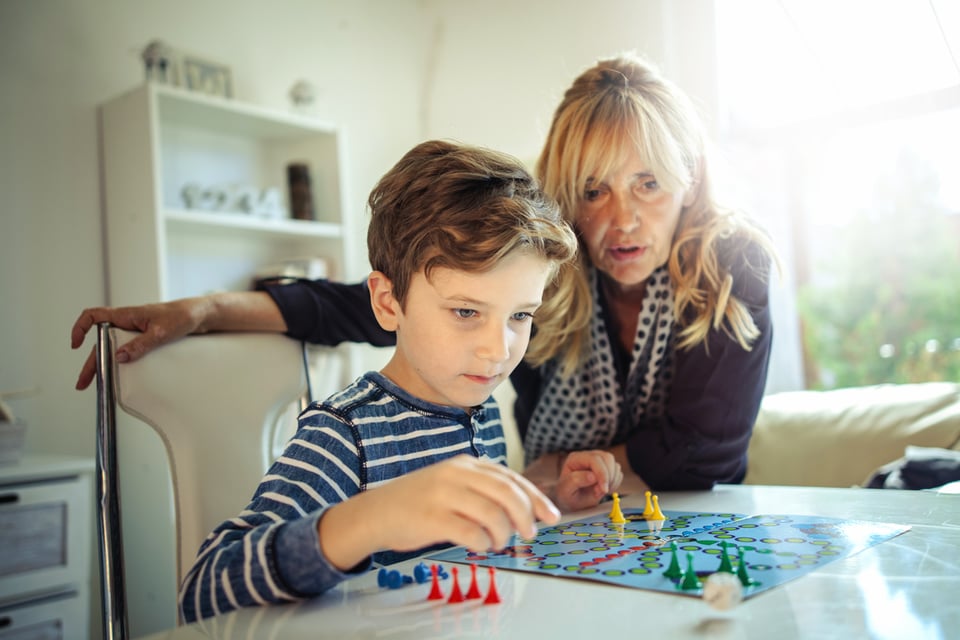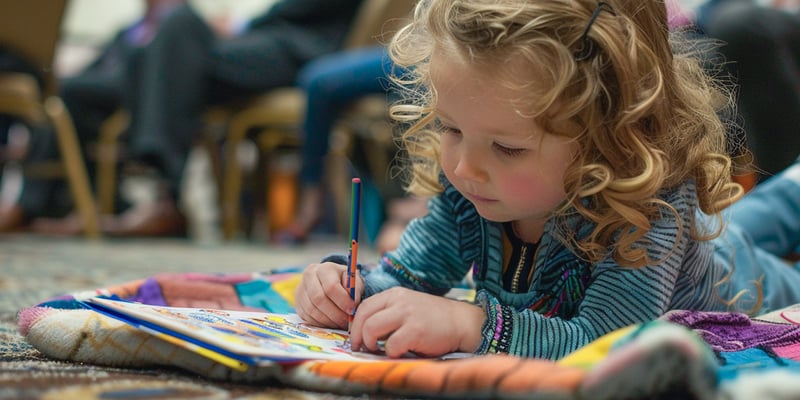What Playing Games Teaches Our Children
Written by Pam Myers
Hearken back to your childhood days. Do you remember the card or board games you played with family and friends?

There were a lot of kids in my childhood neighborhood, so much so that we had to split up if we wanted to play board games. We would meet on a friend’s back porch or in a playmate’s basement and spend hours playing Life, Rack-O, Yahtzee, Battleship, Monopoly, Parcheesi and many others.
My grandson is now old enough to play some of these games. Here are some of my experiences playing these games with him and some important takeaways he is learning from them.
It’s more than just having fun
Two years ago, my grandson began taking an interest in playing board games. His parents bought the game Sorry! and began to teach him how to play. He announced to me one day, “Meema, I am ready to play Sorry! with you because I’ve learned the strategy of how to win!”
I remembered playing Sorry! as a youngster and felt up to the challenge. We played and had a great time, but to my chagrin, he won! Not only did he win, but he “kindly” pointed out the mistakes in my game strategy. He truly thought he was being helpful by sharing this information and did this so that I, too, could someday feel the euphoria of a win!
Fast-forward one year, and he had further developed his winning strategy by playing Monopoly. He was ready to take me on, assuming the roles of both banker and real estate card distributor. I thought that was a lot for a young one to keep track of, but I decided to let him.
As we played, he didn’t share his strategy, but simply controlled and dominated the entire game. Having lost my money, I had to forfeit.
After this humiliating defeat, he shared some of his Monopoly strategies with me. By the next time we played, I, too, had formulated a strategy. But it was a different kind of strategy. It wasn’t to win the game but to instill concepts in his bright little mind!
The art of being a skillful and polite game player
1. Taking turns
Waiting for one’s turn takes patience, and one of my strategies was for him to learn this game skill. We invited other family members to join in the fun. At times, we had four people playing Monopoly, making it hard for my grandson to sit and wait for his turn.
He impatiently tried to hurry other players along so that he could take his turn. Still, he soon discovered that no one likes to be hurried when playing a game, especially when buying big investment properties, houses or hotels. Meema’s strategy was working!
Quietly waiting or conversing with another player displays polite respect for each player’s turn.
2. Developing math skills
As the banker, my grandson had to collect taxes, give $200 whenever a player passed Go, and give the correct change when someone bought a property. Whenever I purchased a property (and my strategy was always to buy the cheapest one), I paid with a $500 bill, asking him to make the change and then count it back to me. Both this and calculating a percentage tax when landing on the Income Tax space are fun ways to teach math skills!
3. Being a good sport
As consistent as my grandson’s strategy is, there have been a few occasions when other players were winning. A sad look comes over his face as he views the game board and sees how much money other players have. He begins talking in a low and monotone voice. He realizes that he will have to forfeit the game unless something drastic happens. As we sometimes say in our household, “Life isn’t always rainbows and unicorns!” He must accept the defeat gracefully and be a good sport!
However, when he has complete command of the board, he will don a pair of sunglasses, fold his arms, sit up tall and enjoy his position of superiority in the game. We have a name (known only in our family circle) for this unacceptable transformation of his behavior. When we begin any game, we talk about both winning and losing and how we can’t allow ourselves to turn into that name!
This is my strategy for teaching him to be a good sport!
4. Encouraging other players
The spirit of competition is all around us in this world. We know its source. As we play games with our children and grandchildren, we must remind them why we play: to spend time together, have fun and learn new skills.
Children learn self-control and patience by learning to balance playing their best and not being upset at another’s success. It can be challenging, but focusing on other players can help build this balance. Complimenting another player for a wise move or a brilliant purchase takes the focus off of self and puts it on others. That can help a child keep a proper perspective.
Childhood games are so much fun and can teach several life skills. If you live far away from your grandchildren, try playing games together online. Keep those connections with them and keep teaching important life principles. Have fun!
If you have children or grandchildren and are interested in other ways to encourage them to learn patience and other social skills, check out the Encourage, Equip & Inspire website. Here, you will find helpful tips regarding Patience and resources for Learning Games.










